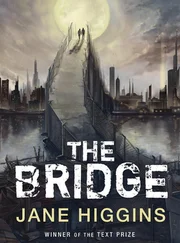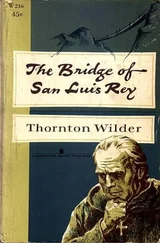Jo didn’t talk to Mandy about suicide. But the signs were all there: Jo’s despair, her silence, her refusal to leave her room. Mandy knew that Jo was struggling to imagine a life in the aftermath of the accident. How did people keep living when grief was weighed down by guilt? So at night, she kept vigil at Jo’s bedroom door, sometimes for hours at a time, shivering in the cold hallway, afraid to go to bed until she heard a murmur or a sigh, signs of life. Suicide watch.
Mandy had gone back to work. What choice did she have? She had requested a transfer and they moved her to a store in Glen Waverley. At least when she was at work she had people to interact with and things to do, and some days she forgot about Jo, about Ashleigh, about the accident, for whole hours at a time. It took her an hour and a half to get home, she didn’t hurry, hesitating each time before she opened the front door and called out, ‘Jo, I’m home. Jo, are you there?’ Jo took her time to respond, and sometimes not until Mandy had called out a second or third time, ‘I’m here. Where else would I be?’
With some coaxing, Jo began to come out at dinnertime, and they sat at the table together. Mandy talked about the weather, about people at work. She was careful not to complain about travelling to Glen Waverley, or about missing her old workmates. Neither of them mentioned the accident or Ashleigh. Mandy planned to talk to Jo about getting a job or going back to school, but she couldn’t stand the idea of Jo out in the world where she might run into Alex or Rae or Jane or some of her schoolfriends. And she was worried, ashamed, and so sad. She didn’t think they’d ever be able to see anything, do anything, in any other way. Plus there was the trial to get through. ‘It might be six months or longer,’ Sarah had told them.
Sarah was collecting character statements from people prepared to say Jo was a good person, that Jo wasn’t the sort of young woman given to being irresponsible, but Mandy worried that Sarah wouldn’t find enough people willing to make positive statements. Not that Jo had ever been a bad kid. But who did they know? Jo didn’t belong to any clubs or community groups. Mandy didn’t have influential contacts. ‘I don’t know any politicians or business managers, anyone like that,’ she had told Sarah. ‘My neighbor, Mrs Nguyễn, likes Jo and she’s happy to sign a statement. But she doesn’t want to go to court. Those kinds of places make her nervous. She asks me to go with her if she has to talk to someone at the bank or Centrelink. My other neighbours — well, Bob has been in and out of prison most of his life, and the rest are renters I don’t know.’
‘I want you to promise me,’ Mary said, ‘that you won’t do anything silly.’ She was sitting opposite Jo at the kitchen table.
‘Too late for that, Nan, don’t you think?’ Jo put her sandwich down. She hadn’t eaten peanut butter and honey sandwiches since she was a fat twelve-year-old. But her grandmother had made them, and spent a long time coaxing Jo out of her room. White bread, in neat triangles, and a pot of tea. The sandwiches were comforting.
‘What’s done is done,’ Mary said. ‘But I mean, you won’t do anything to hurt yourself?’
Jo didn’t tell Mary she’d spent the morning googling suicide methods.
‘Things’ll get better,’ Mary said.
Your grandmother is a Pollyanna. It was one of Mandy’s more common complaints about Mary. It was true, Jo thought, but maybe it was a special gift, to believe that things would turn out alright.
‘You think that’s possible, Nan?’
‘I know it seems like it’s the end of the world. But bad things happen to everyone. Everyone makes mistakes. Slowly life will get better. I know that from experience. You’re young. I’m old, you have to trust me.’
‘I can’t imagine anything ever getting better. Ever.’ Jo knew that Mary’s early life had been difficult. Mary’s father had died when she was a child, and her mother had spent years in psychiatric hospitals. Jo had heard some of her grandmother’s stories about the poverty, the loneliness, of growing up in a house with elderly grandparents who never stopped grieving for their son. ‘How poor were you?’ Jo and Mandy often teased Mary when they could see she was about to tell a story they had heard before. But Mary told the stories anyway, and talked about God and strength and carving out a life.
‘I haven’t told you how my father died,’ Mary said.
‘No. Was he sick?’ Jo sensed a story coming. Listening to Mary was better than listening to Ash’s voice or her own circling thoughts.
‘I don’t know if he was sick. These days we’d say he must’ve been.’ Mary hesitated. ‘This is a story I thought I’d never tell you,’ she said. ‘I was five years old and playing in the backyard with my baby doll and an old pram, taking the doll for trips down the path that ran around the lemon tree, through the lawn, past the barbecue, and to the vegetable patch. I was singing ‘Rock-a-bye Baby’ and watching the doll, pretending I was its mother.’
Jo pushed the plate with the remainder of the sandwich away from her. Mary frowned and pushed it back towards Jo. ‘Eat,’ she said. Jo grimaced, but didn’t respond. It seemed to Jo that her grandmother hadn’t aged in the last twenty years — she’d been an old woman when Jo was little and she was an old woman now. Her hair was a soft cloudy white, and she still wore it in the same short bob. It was difficult to imagine Mary as a little girl pushing a doll in a pram.
‘I can still remember my mother’s scream, a high-pitched cry, and I knew it was bad, so I ran into the house, calling, “Mummy, Mummy, where are you?” She didn’t respond, and I couldn’t find her until I heard the door of my parents’ bedroom bang shut, and there was my mother standing against the door and yelling at me, “Go away, go back into the backyard. Go now and don’t come back. Go.” She was so angry, she didn’t look at all like my mother. My mother had the most beautiful blue eyes — “smiling eyes”, my father called them — but the woman at the door had dark, bulging eyes, and she wouldn’t look at me.
‘I was a little girl, so I don’t remember everything. But I remember I was scared. I hadn’t heard my mother yell before. I stopped and my mother shooed me away like she did our old cat, Ginger, when she came too close to the table at dinnertime, waving me away with her hand. She opened the door and slid back into the room, slamming it shut and yelling. I cried. I called out to her. I wanted her to come back out and pick me up.
‘My grandparents said they found me sitting on the back doorstep pulling the farm animals off my dress — I loved that dress. My mother had made it on her treadle Singer sewing machine. Around the hem, she’d sewn felt farmyard animals. They held hands and paws to form a ring-a-rosie. I must’ve heard the sirens, the ambulance and the police. It was a couple of days before my grandmother told me that my father was dead, and that my mother was very, very sad.’
‘Suicide?’ Jo asked.
‘Yes.’
‘Why?’
‘I still don’t know. Maybe my mother knew. Maybe my grandparents, but no one ever talked about it. He was a coward. Let himself off the hook, and killed everything for the rest of us — for my mother, for his parents, for me. My mother changed. She hated music, especially the radio. She hated seeing me playing with my friends. We couldn’t live in our house, so we moved in with my father’s parents. My mother spent the next ten years in and out of hospital. My mother became stuck. If you get stuck, it can be impossible to get unstuck. I don’t want you to get stuck.’
But Jo was stuck. She didn’t identify with Mary’s mother in the story. She wanted to know more about Mary’s father, and the desire to make life stop.
Читать дальше












